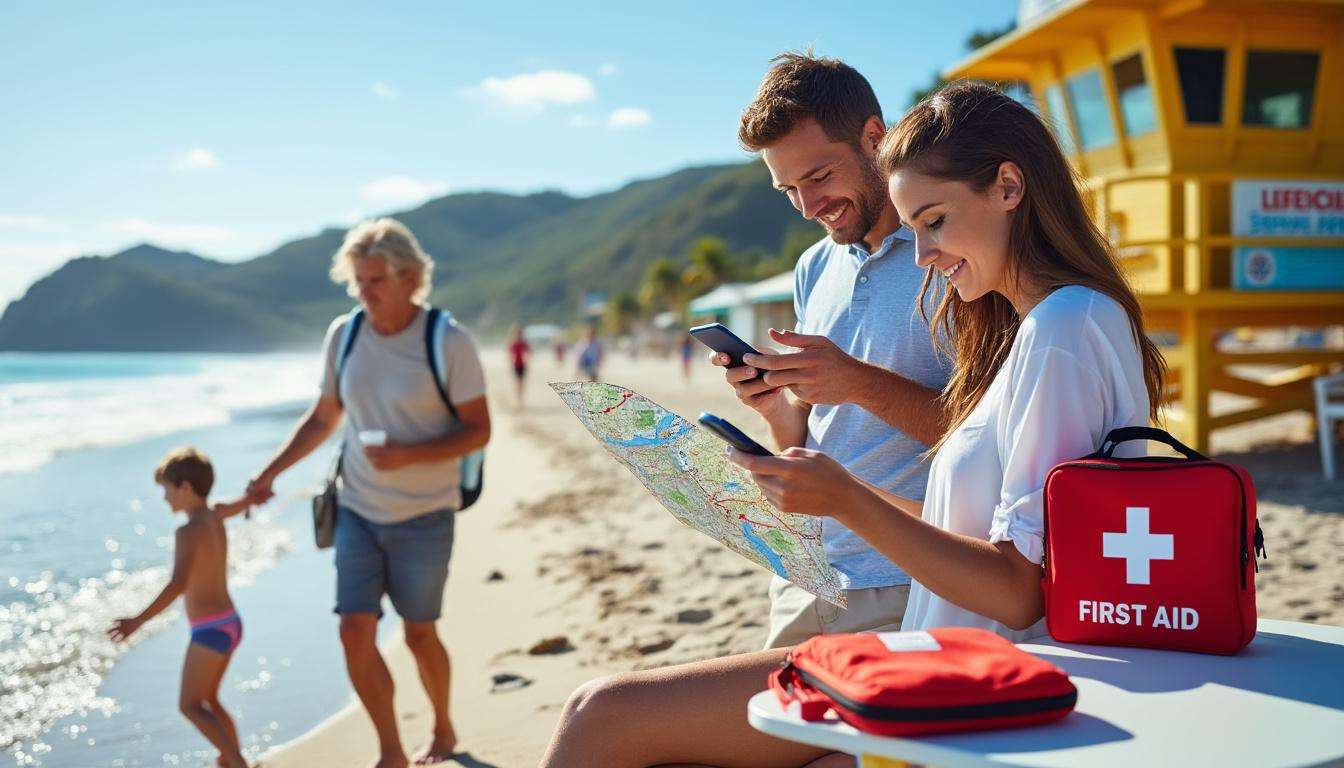Travel emergencies are often unexpected and can quickly turn a dream vacation into a stressful ordeal. Whether it’s a sudden medical incident, a lost passport, or a family emergency back home, having the right preparation and insurance can save you time, money, and peace of mind. Long Island travel advisors stress the importance of comprehensive travel insurance and preparedness to effectively manage such situations when they arise.
Comprehensive Travel Insurance: Your Best Defense Against Vacation Emergencies
Long Island travelers Kathleen and Dennis Casale faced a dire family emergency while cruising in Bermuda and had to cut their trip short. Thanks to their travel insurance, purchased for a modest $358, they were reimbursed nearly $2,000 for costly last-minute travel arrangements. Their story underscores why Travel Guard and Allianz Travel Insurance are frequently recommended policies for covering unexpected family emergencies, trip cancellations, and medical issues abroad.
- Verify if your policy covers trip interruption for immediate family emergencies.
- Assess insurance policies for medical evacuation coverage, including airlift options.
- Understand age-related premium increases and consider purchasing early.
- Check the reputation of insurance providers to avoid delayed claims.
- Read all policy details carefully—coverage varies widely between companies.
When choosing insurance, consider additional services like Medjet for medical transport and International SOS for global emergency assistance. These can be invaluable in remote or high-risk locations.
Preparing Essential Emergency Supplies and Medical Coverage for Your Trip
Travel experts from Long Island unanimously recommend packing a personal first aid kit tailored for your needs. Beyond regular medications, include headache relievers, antacids like Pepto Bismol, and bandages. Having these readily available, especially during odd hours, avoids unnecessary stress and expense abroad.
- Keep medications in original packaging to facilitate customs and medical consultations.
- Check if your home medical insurance covers overseas emergencies; some consider this out-of-network with higher costs.
- Don’t rely solely on credit card medical coverage—amounts and terms can be limited. Visit this guide for detailed analysis.
- Consider buying dedicated travel medical insurance, especially for older travelers or those with preexisting conditions.
- Maintain a paper copy of your health insurance and emergency contacts while traveling.
Tools like TripIt and AlertTraveler apps can enhance your preparedness by storing vital documents and alerting you to regional crises.
Handling Unexpected Situations: Practical Steps During Your Vacation
Emergencies may arise without warning—lost passports, injuries, or natural disasters. Long Island travel advisers emphasize staying calm and acting swiftly:
- Contact your travel insurance provider immediately to report and document the incident.
- Keep all receipts and documentation for medical visits, transportation, and any emergency services.
- Enlist help from your resort or hotel—they often coordinate ambulance or local healthcare services.
- Use a separate credit card with sufficient balance to pay upfront medical bills for later reimbursement.
- Plan ahead for contingencies like medical evacuation, preferably with coverage from providers like TravelSafe.
Travelers should also be aware of coverage terms affecting preexisting conditions and cancellations as detailed on this resource. Prompt action and clear documentation greatly accelerate claim processing.
Advanced Precautions: Airlift Coverage and Handling the Worst
Since the COVID-19 pandemic, demand for airlift and medical evacuation coverage has increased, particularly for remote destinations like Antarctica or Africa. Cruise travelers also benefit from this coverage, considering the complexity and cost of helicopter rescues from ships. Insurance like Medjet can specify whether evacuation is to the nearest medical facility or back to your home country, an important factor when choosing policies.
- Determine if your travel insurance covers repatriation of remains in the event of death abroad.
- Ensure your policy includes benefits for family members to travel during medical crises.
- Investigate insurer responsiveness to emergency calls—some resorts assist with form translations, financial arrangements, and communications.
- Inform credit card companies before departure to ensure seamless international transactions and request temporary credit limit increases if necessary.
- Review your home insurance and business insurance options for broader coverage in case natural disasters impact your property during travels. See our advice on business insurance and natural disasters.
Frequently Asked Questions About Managing Travel Emergencies
- Q: What should I do if I lose my passport abroad?
A: Immediately report the loss to the local authorities and your country’s embassy. Contact your travel insurance provider to understand coverage related to passport replacement and trip interruption. - Q: Does my regular health insurance cover emergencies overseas?
A: Coverage varies widely. Always verify with your insurer if overseas emergencies are included or if they apply out-of-network charges. Supplementary travel medical insurance is often necessary. - Q: Can I add travel insurance after booking my trip?
A: Yes, but typically within a 14- to 21-day window after booking to include preexisting condition coverage. After that, medical coverage may exclude such conditions. - Q: How can I prepare financially for a travel medical emergency?
A: Bring a separate credit card with adequate credit and notify your bank of your travel plans. This enables you to cover upfront costs which can then be reimbursed. - Q: What are the key features to look for in travel insurance?
A: Trip interruption, emergency medical evacuation, coverage for preexisting conditions, and benefits for family members’ travel during emergencies are crucial. Services from GEOS Travel Safety and International SOS add valuable assistance.
For more guidance on protecting your health during summer trips, explore our article here.


